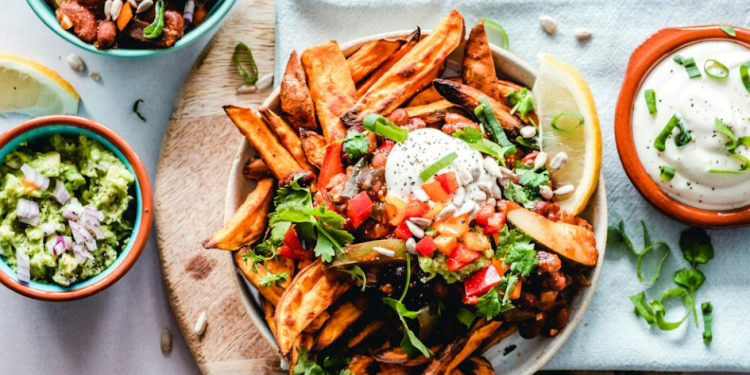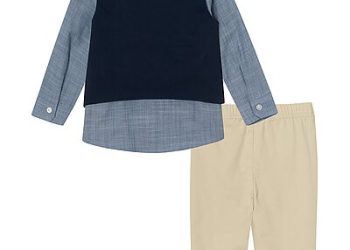Introduction
In today’s busy world, snacking has become a common practice for many people. Whether it’s a mid-morning pick-me-up or an afternoon energy boost, healthy snacking plays a crucial role in maintaining energy levels and managing hunger. In this article, we’ll explore the fundamentals of healthy snacking and provide tips for making smart choices that satisfy both your cravings and your nutritional needs.
Understanding Healthy Snacking
Healthy snacking involves consuming small, nutrient-dense meals or snacks between regular meals to help maintain energy levels and prevent overeating later in the day. Unlike traditional “junk” snacks high in sugar and unhealthy fats, healthy snacks are rich in essential nutrients like vitamins, minerals, fiber, and protein.
Nutritional Components of a Healthy Snack
A balanced snack should contain a combination of carbohydrates, protein, and healthy fats to provide sustained energy and keep you feeling full longer. Carbohydrates supply quick energy, while protein and fats help stabilize blood sugar levels and promote satiety.
Choosing the Right Snacks
When selecting snacks, opt for whole, minimally processed foods whenever possible. Some nutritious snack options include fresh fruit, vegetables with hummus or nut butter, Greek yogurt, nuts and seeds, and whole-grain crackers with cheese. Look for snacks that are high in fiber, protein, and healthy fats to keep you feeling satisfied between meals.
Portion Control and Moderation
While healthy snacks can be beneficial, it’s important to practice portion control and moderation to avoid consuming excess calories. Pay attention to serving sizes and avoid mindlessly munching on snacks straight from the bag. Instead, portion out your snacks into smaller containers or plates to help prevent overeating.
Snacking on the Go
For busy individuals, finding portable and convenient snacks is essential. Stock up on grab-and-go options like pre-cut fruits and vegetables, trail mix, protein bars, and single-serving packets of nut butter or hummus. Planning ahead and keeping healthy snacks on hand can help you make better choices when hunger strikes away from home.
Mindful Snacking
Practicing mindfulness while snacking can enhance the eating experience and help prevent overeating. Before reaching for a snack, take a moment to check in with your hunger and ask yourself if you’re truly hungry or just bored or stressed. Eat slowly and savor each bite, paying attention to the taste, texture, and aroma of the food.
Healthy Snack Recipes
Preparing your own snacks at home allows you to control the ingredients and ensure they’re nutritious and satisfying. Try making simple recipes like homemade energy balls, Greek yogurt parfaits with fresh fruit and granola, or veggie sticks with homemade guacamole.
Snacking for Specific Dietary Needs
For individuals with specific dietary needs or restrictions, there are plenty of snack options available. Vegetarians and vegans can enjoy snacks like roasted chickpeas, edamame, or veggie sushi rolls, while those following a gluten-free diet can snack on rice cakes with almond butter, fruit and cheese, or gluten-free granola bars.
Snacking for Weight Management
Contrary to popular belief, snacking can actually support weight management when done mindfully and with the right choices. Incorporating healthy snacks into your diet can help prevent overeating at meals and keep your metabolism humming throughout the day. Just be sure to choose snacks that are nutrient-dense and portion-controlled to avoid excessive calorie intake.
Conclusion
Healthy snacking is an important part of a balanced diet and can help keep you fueled and satisfied throughout the day. By choosing nutrient-dense snacks, practicing portion control, and being mindful of your eating habits, you can make smart choices that support your health and well-being.

FAQs
1. Can I snack on fruits and vegetables all day and still lose weight?
- While fruits and vegetables are nutritious options, it’s important to balance your snacks with other food groups like protein and healthy fats to ensure you’re meeting your nutritional needs and staying satisfied.
2. Are pre-packaged snack bars healthy?
- Some pre-packaged snack bars can be nutritious options, but it’s essential to read the ingredients list and nutritional information to avoid bars that are high in added sugars and unhealthy fats.
3. How can I prevent mindless snacking while working from home?
- Set designated snack times and choose nutrient-dense snacks that require portioning out, such as nuts or chopped vegetables, to prevent mindless munching.
4. Are late-night snacks bad for you?
- It’s generally best to avoid eating large meals or heavy snacks right before bedtime, as it can disrupt sleep and digestion. If you’re hungry before bed, opt for a small, light snack like a piece of fruit or a handful of nuts.
5. Can I substitute snacks for meals to lose weight faster?
- While snacks can be part of a healthy weight loss plan, it’s essential to consume balanced meals throughout the day to ensure you’re getting all the nutrients your body needs. Restricting meals in favor of snacks can lead to nutrient deficiencies and unhealthy eating habits.




